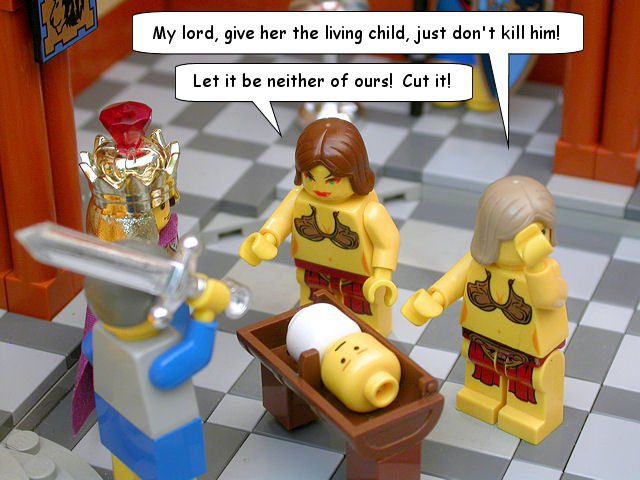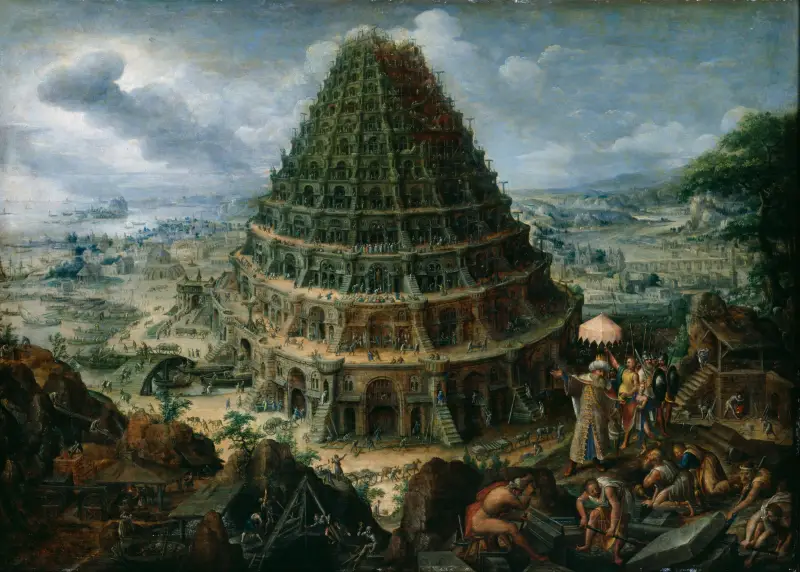It’s always easiest to imagine humanity existing in a single dualistic contrast. I do this a lot. There are two types of white people… There are two types of Christians… Etc. And it’s bullshit every time that I do it. It definitely makes it easier to write think-pieces. But the world doesn’t happen in binaries. There are many layers to our disagreements within United Methodism. We disagree about what we’re disagreeing about. But I think it’s very unhelpful to see United Methodism as falling into two distinct, coherent theological camps whether you call the two camps orthodox vs. heretic or fundamentalist vs. reasonable. When it comes to our theology, we are legion.
I have known so many kinds of United Methodists. Some used to be Catholic; some used to be Baptist; others used to be un-churched. I know someone who isn’t sure Jesus was physically resurrected from the dead but has one of the strongest connections with the Holy Spirit I’ve ever seen. I know a guy who’s about as right-wing as they come politically who doesn’t believe that anything in the Old Testament happened historically. I know a tree hugger with bumper stickers on her car for every liberal cause who speaks in tongues and reads other peoples’ mail in a Pentecostal sense. There are evangelical refugees like me. There are people who got bored in the liberal mainline and needed to hear some inspired evangelical preaching.
Within this messy mix of people, there just aren’t two theological camps. Some United Methodists with very conservative values also think that it’s disrespectful and inappropriate to talk about your faith with complete strangers. Other United Methodists who are very passionate about social justice also believe in hell and want to help people avoid it. There are United Methodists who believe strongly in both holiness and LGBT inclusion. There are United Methodists who aren’t super-articulate about doctrine but spend an hour each day in prayer. There are United Methodists who can teach Christian theology very well but also have a lot of private doubts about it. There are United Methodists who spend their lives in the kitchen and the sacristy and exude the fruits of the spirit whether or not they can tell you what Jesus’ cross has to do with it.
In 1 Corinthians 12, Paul makes it clear that Christianity is supposed to be a body with many different complementary parts, not a collection of cookie-cutter clones. To me, it makes sense that different parts of Christ’s body would see theology differently in accordance with their gifting and calling. If God has called us differently, why would he not prepare us differently also? A historian ought to have very different theological sensibilities than an evangelist, because the historian’s concern is with preserving the tradition and representing it faithfully while the evangelist’s concern is with speaking the gospel in a language that today’s world will be able to grasp. Even among evangelists, there ought to be a range of theologies depending on the mission field for which God is shaping the evangelist. A military chaplain needs a very different theology than a college chaplain.
What makes United Methodism unique among American Protestant denominations is our theological diversity. That in itself is a result of our theology. I do understand the value of having a clear, concise vision for what we think God has called us to do. And I’m not sure how we can improve upon making disciples of Jesus Christ for the transformation of the world. I think we need the core Wesleyan understanding of grace as prevenient, justifying, and sanctifying. I think we need to understand that Jesus has offered to put our sin on his cross so we can liberated from it and also that the same power that raised him from the dead can give us new life. I think our spiritual goal is the holiness that is perfection in love, or what John Wesley called Christian perfection. We do need to agree on some basic fundamentals like this in order to have a coherent ministry, but I don’t see value in trying to expand “orthodoxy” to include social issue litmus tests or in trying to narrate our reality into a false binary of theological camps.
Other United Methodists who support LGBT inclusion do so for very different theological reasons than I do. While I’ve been influenced by liberation theology, I am not willing to adopt any theology that does not have its foundation in Christian scripture (some liberation theologies do; some don’t). I appreciate the critiques provided by queer and feminist theologies, but when they discard scripture, I cannot follow. To me, the Bible will always be our primary text as Christians. A tremendous range of interpretations and prioritizations are possible, but picking a new primary text is not. I suppose that’s another fundamental that seems necessary (and obvious) to me in order to build coherent Christian ministry. I couldn’t serve as a pastor in a church that expected me to preach sermons based on the Bhagavad Gita or Audre Lorde poetry rather than the Bible.
I’m only one person, but I know a lot of other post-evangelical United Methodists who are similarly shaped. If I had to choose between a church that followed John Dominic Crossan and one that followed NT Wright, I would pick NT Wright though I wouldn’t be shy about my quarrel with him over sexuality. So I would be ripped right down the middle if United Methodism tried to split into “evangelical” and “progressive” sides and a lot of other people would be too. I think the best way forward is for annual conferences to have greater autonomy and for congregations to have the option of switching conferences as needed. As I wrote in my previous post, annual conferences are relational enough that we can actually seek the Holy Spirit together a lot better than a highly pressurized quadrennial, multilingual gathering of strangers. The place where the vetting happens seems like the place where a coherent vision can be cast.
It makes more sense to me to have fifty different flavors of United Methodism that share resources together than to try to split in two or even three entirely different entities. My hope is that we can genuinely listen to God and each other rather than letting punitive, vindictive spirits cloud our thinking. I want to make disciples who transform the world and I want others to be free to do the same using the theological convictions that make the most sense to their gifting and mission field. So whatever structure best equips that has my vote.
Please check out my book How Jesus Saves the World From Us!
With all the chaos in our United Methodist polity, our conference funding for campus ministry has decreased dramatically in the last two years. If you want the United Methodist Church to have a future, then you need to invest in campus ministry. No pledge is too small!













